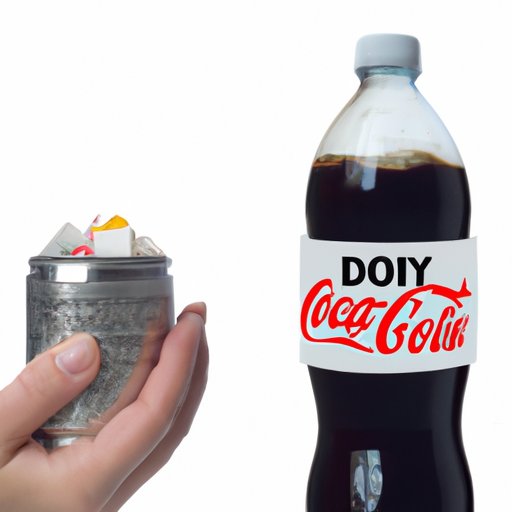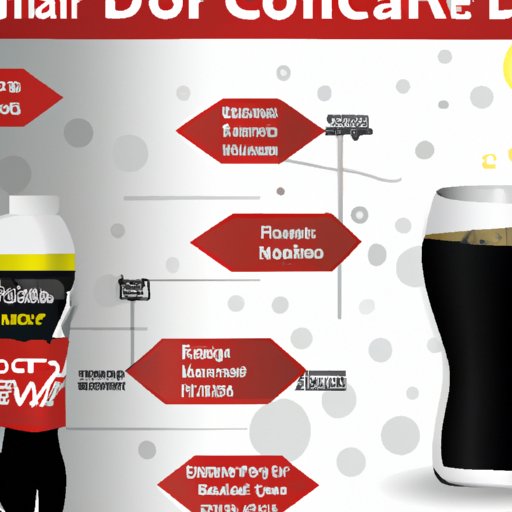Introduction
Diet Coke is a carbonated, sugar-free soft drink produced by the Coca-Cola Company. It was first released in 1982 as an alternative to regular Coca-Cola for those looking to reduce their sugar intake. In the decades since, it has become one of the most popular diet sodas in the world.
Despite its popularity, there has been much debate over the years surrounding the health effects of Diet Coke. Some experts argue that it is a healthier alternative to regular soda, while others suggest it can be detrimental to health. In this article, we will investigate both sides of the argument to uncover the truth about Diet Coke.
Investigating the Health Effects of Diet Coke
To determine whether Diet Coke is bad for you, it’s important to look at the nutritional value of the beverage. Diet Coke contains zero calories, zero fat, and zero sugar. It also contains very small amounts of sodium, carbohydrates, and caffeine. However, it does contain artificial sweeteners such as aspartame, which have been linked to a variety of health risks.
It’s also important to consider the pros and cons of drinking Diet Coke. On the plus side, if you’re looking to cut down on your sugar intake, Diet Coke can be a good alternative to regular soda. Additionally, it can be used to add flavor to food without adding extra calories or sugar. On the other hand, some studies have suggested that artificial sweeteners may increase the risk of obesity and diabetes, so it is important to be mindful of how much Diet Coke you are consuming.

Uncovering the Potential Dangers of Diet Coke
In recent years, there has been a growing body of research examining the health effects of Diet Coke consumption. A 2017 study published in the journal Cell Metabolism found that people who drank diet soda were more likely to gain weight than those who didn’t. Another study published in the journal Diabetes Care in 2016 found that drinking two or more cans of diet soda per day was associated with a higher risk of type 2 diabetes.
In addition to the potential health risks associated with Diet Coke consumption, it’s important to be aware of the known side effects of the beverage. Caffeine is a common ingredient in Diet Coke, and drinking too much of it can lead to insomnia, restlessness, irritability, and headaches. Additionally, artificial sweeteners like aspartame can cause digestive issues such as bloating, gas, and diarrhea.
Conclusion
In conclusion, Diet Coke can be beneficial for those looking to reduce their sugar intake. However, it is important to be aware of the potential health risks associated with the beverage. Studies have linked Diet Coke consumption to an increased risk of obesity and diabetes, as well as known side effects such as insomnia and digestive issues. Therefore, it is important to consume Diet Coke in moderation.
At the end of the day, the best way to determine whether Diet Coke is bad for you is to speak with your doctor. Your doctor can help you make an informed decision about your Diet Coke consumption based on your individual needs and health goals.
(Note: Is this article not meeting your expectations? Do you have knowledge or insights to share? Unlock new opportunities and expand your reach by joining our authors team. Click Registration to join us and share your expertise with our readers.)
